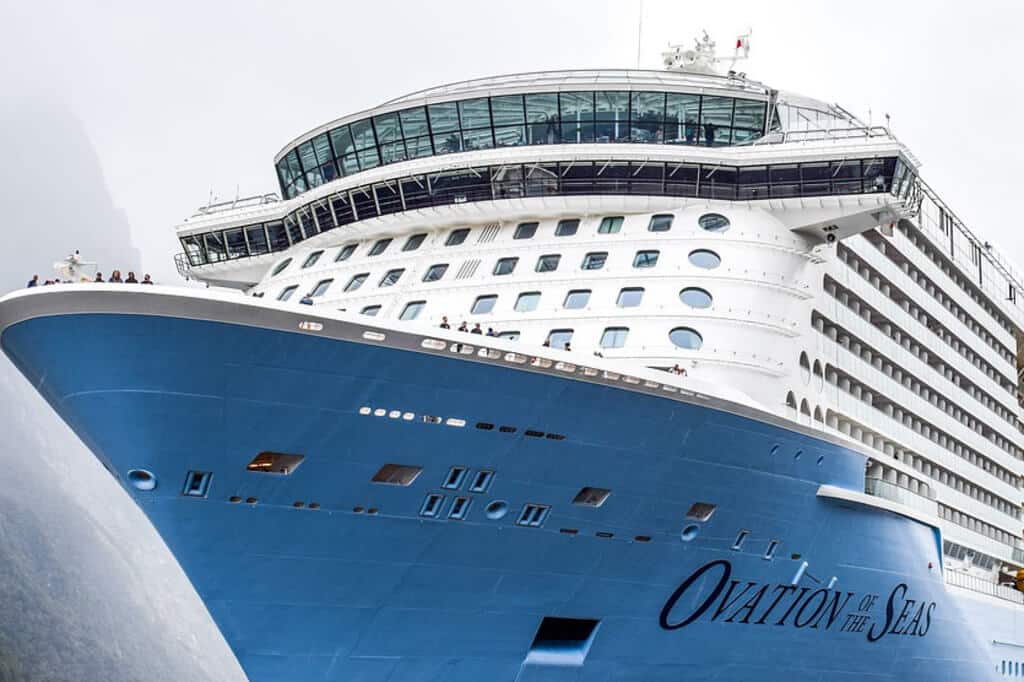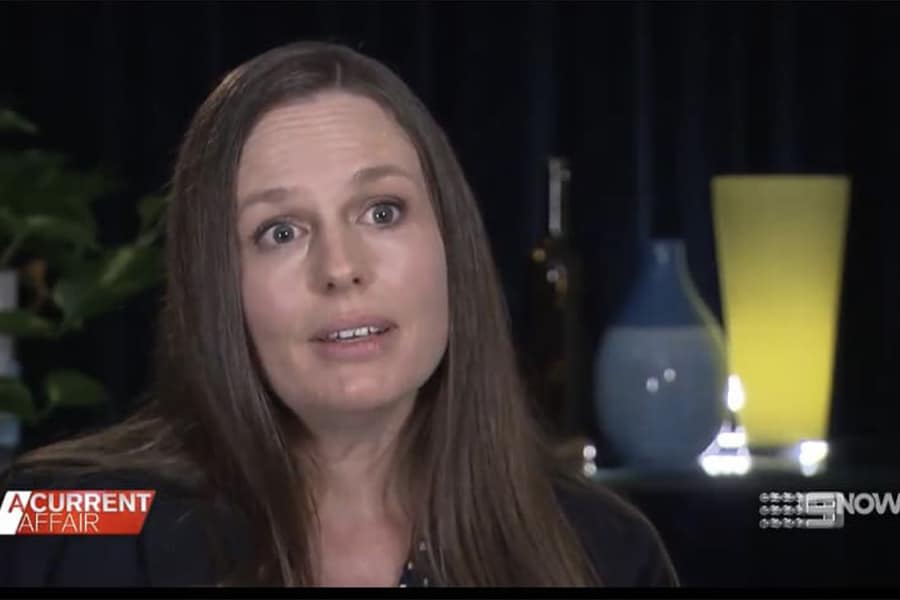Cruise ship accident lawyers acting for two Melbourne victims of the White Island volcano disaster have defeated legal action brought by Royal Caribbean to stop the victims from proceeding with their claims in Florida.
In this article we summarise the key points for cruise ship accident lawyers from the Federal Court decision Royal Caribbean Cruises Ltd v Browitt [2021] FCA 653.
Factual background
On 9 December 2019, the volcano on Whakaari, also known as White Island, erupted. At the time of the eruption, cruise passengers from Royal Caribbean’s Ovation of the Seas were participating in a Royal Caribbean shore excursion on the island. 22 passengers died and 25 were injured as a result of the tragic shore excursion accident.
Amongst the victims were the Browitt family. Father and daughter Paul and Krystal died in the tragedy. Krystal’s sister Stephanie suffered life changing burns and associated complications.
Mother Marie had not gone on the tour. She suffered the indescribable loss of her husband and daughter in that ill fated shore excursion, and is now her surviving daughter’s carer.
Marie Browitt had booked the cruise at a local Flight Centre branch on behalf of the family.
Royal Caribbean Cruises Ltd is incorporated in Liberia. It has its head office in Miami where it conducts most of its business operations.
Royal Caribbean Cruises Ltd operates internationally through a variety of subsidiaries. The subsidiary operating in Australia is RCL Cruises Ltd t/as Royal Caribbean.
Cruise ship accident lawyers commence US lawsuit
Cruise ship accident lawyers acting for Marie and Stephanie commenced lawsuits in Florida against Royal Caribbean. The claims included the wrongful deaths of Paul and Krystal, as well as Marie and Stephanie’s physical and psychological injuries.
The Brewitts chose to sue in Florida for a number of reasons. Royal Caribbean has its head office there, including the Global Tour Operations department which developed, operated and set the policy for shore excursions. This department also approved the onboard promotion and sale of the White Island excursion to Ovation of the Seas passengers.
Additionally, Florida had certain procedural advantages such as deposition of witnesses and trial by jury. It also offered potentially greater damages compared to Australia.
On 18 December 2020, Royal Caribbean commenced an action in the Federal Court in NSW to stop the Browitts from proceeding with the US claim. Royal Caribbean relied on an exclusive jurisdiction clause in its terms and conditions which stated that only courts in NSW could resolve disputes about the cruise holiday.
Legal issues in dispute between the parties’ cruise ship accident lawyers
Was Flight Centre an agent for the passengers as well as Royal Caribbean?
Stewart J found that according to Flight Centre’s contract with the Browitts, it was authorised to make the cruise booking subject to Royal Caribbean’s terms and conditions.
Additionally, he found that Flight Centre acted as agent for the Browitts as well as Royal Caribbean. This was an usual situation because as well as making a contract between its principal (Royal Caribbean) and third party (the Browitts), it had its own contracts with both. Nevertheless, Flight Centre was found to be the Browitts’ agent with the very limited scope of making travel bookings subject to Royal Caribbean’s terms and conditions.
Mrs Browitt had not read Royal Caribbean’s terms and conditions, including the exclusive jurisdiction clause. However as agent of the passengers, Flight Centre’s knowledge of the Australian terms and conditions was attributed to the Browitts.
Were Royal Caribbean’s Australian terms and conditions incorporated into the contract?
The Federal Court noted that it is well established that an exclusion of liability clause can be valid when a passenger signs it but does not read it (Oceanic Sun Line Special Shipping Company Inc v Fay [1988] HCA 32).
Further, where a party authorises an agent to contract on their behalf, that party is bound by the terms and conditions on which the agent contracts.
In this instance, Mrs Browitt signed her Flight Centre invoice and acknowledged that she understood and agreed to the terms and conditions.
Contracts between passengers and Flight Centre were subject to terms and conditions. These included the authority for Flight Centre to bind passengers to relevant service providers terms and conditions. The booking was therefore found to be subject to Royal Caribbean’s Australian terms and conditions. This included the exclusive jurisdiction clause.
Stewart J also found that Royal Caribbean gave passengers reasonable notice of its terms and conditions, for example in its brochure.
Stewart J did not, however, find that the link on Royal Caribbean’s website or emails constituted reasonable notice. This was because the link clicked through to various terms and conditions and it would not be obvious to a passenger which applied.
Construction of Royal Caribbean’s Australian terms and conditions
The basis of Royal Caribbean’s claim was that the Browitts should be held to the exclusive jurisdiction clause in favour of the courts of NSW in their Australian terms and conditions.
The cruise ship accident lawyers representing the Browitts successfully argued that the exclusive jurisdiction clause did not apply to the US lawsuit.
This was because as a matter of construction, the Australian terms and conditions were between the Browitts and one Royal Caribbean entity. That entity was found to be RCL Ltd i.e the Royal Caribbean subsidiary operating in Australia. However, the US lawsuit was against the parent company Royal Caribbean Cruises Ltd.
The exclusive jurisdiction clause was not worded sufficiently broadly for Royal Caribbean Cruises Ltd to benefit from it.
Despite being incorporated into the contract, the exclusive jurisdiction clause therefore had no application to the US lawsuit underway in respect of the shore excursion accident.
Was Royal Caribbean entitled to an anti-suit injunction based on breach of its Australian terms and conditions?
Due to the way the terms and conditions were constructed as set out above, Royal Caribbean was not entitled to an anti-suit injunction.
The US proceedings were not in breach of the exclusive jurisdiction clause.
Was the claim in Florida vexatious or oppressive to justify an anti-suit injunction?
Stewart J found that the US proceedings were not vexatious or oppressive.
The claim being made was against Royal Caribbean Cruises Ltd who were based in Florida where the lawsuit had been commenced.
Royal Caribbean Cruises Ltd did not have the benefit of an exclusive jurisdiction clause.
The US claim did not involve unconscionable conduct or unconscentious exercise of a legal right. The Brewitts had legitimate reason for bringing the claim in Florida.
Outcome
Consequently the proceedings brought by Royal Caribbean were dismissed. They were ordered to pay the Browitts’ costs.
The Browitts are therefore free to continue their litigation against Royal Caribbean in Florida.
Analysis for cruise ship accident lawyers
The case of Royal Caribbean Cruises Ltd v Browitt highlights a number of relevant points for cruise ship accident lawyers.
Firstly, the judgment sheds some light on the complex relationships between the various parties involved in a cruise booking including: the parent cruise line, the local subsidiary cruise company, the ship operator, the ship owner, the travel agent and the passenger. Non-cruise lawyers would be forgiven for getting themselves in boating knots when trying to decipher the contractual relationships between these parties, often across multiple jurisdictions.
Secondly the judgment shows that incorporation and construction of contractual terms and conditions is key when representing injured cruise passengers. For a cruise ship accident lawyer, expertise in personal injury law alone is insufficient to get the best results for clients.
Finally, the decision shows the importance of considering potential causes of action in different jurisdictions in appropriate cases. Cruise ships who (pre-covid) operate in Australia are generally run by cruise lines head quartered in the US, UK or Europe. Quantum will not always make it appropriate to investigate causes of action in other jurisdictions, especially when a claim under Australian law is available. However, in some instances a claim in a foreign jurisdiction could be materially advantageous to the injured passenger. In those cases, it is important to work with fellow cruise ship accident lawyers who are experienced in this complex area of law.
By Victoria Roy
Victoria Roy is Principal Solicitor at Victory Travel & Cruise Lawyers, a boutique law firm specialising in bringing compensation claims for injured travellers and cruise passengers. Victoria is an experienced cruise ship accident lawyer having first started working in this area in 2010. She is qualified in England & Wales and NSW, and has close working relationships with expert cruise ship accident lawyers in different jurisdictions including Florida, the UK and Italy. Victoria also chairs the Australian Lawyers Alliance Travel Law Special Interest Group.
This report does not comprise legal advice and neither Victory Travel & Cruise Lawyers nor the author accepts any responsibility for it. For advice on your specific circumstances, book an appointment with a lawyer.


